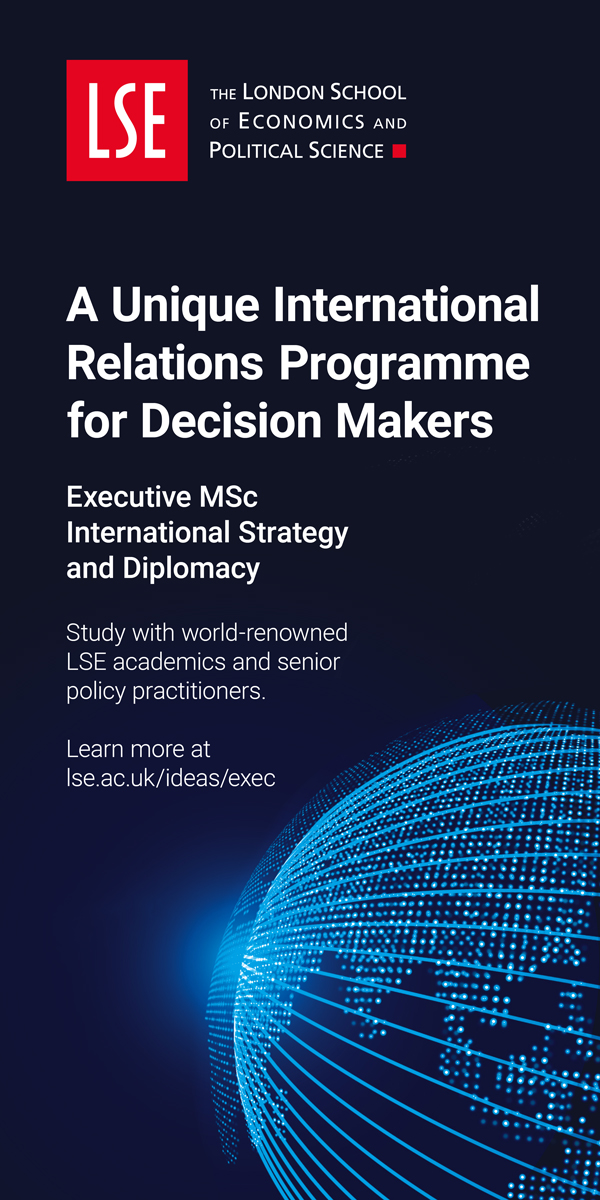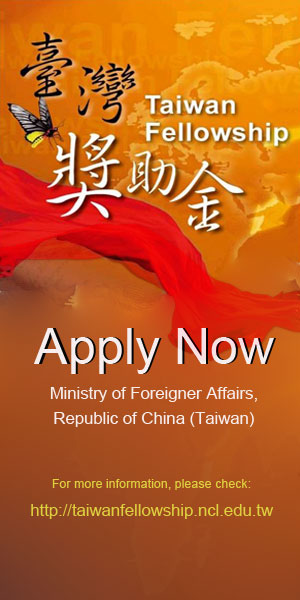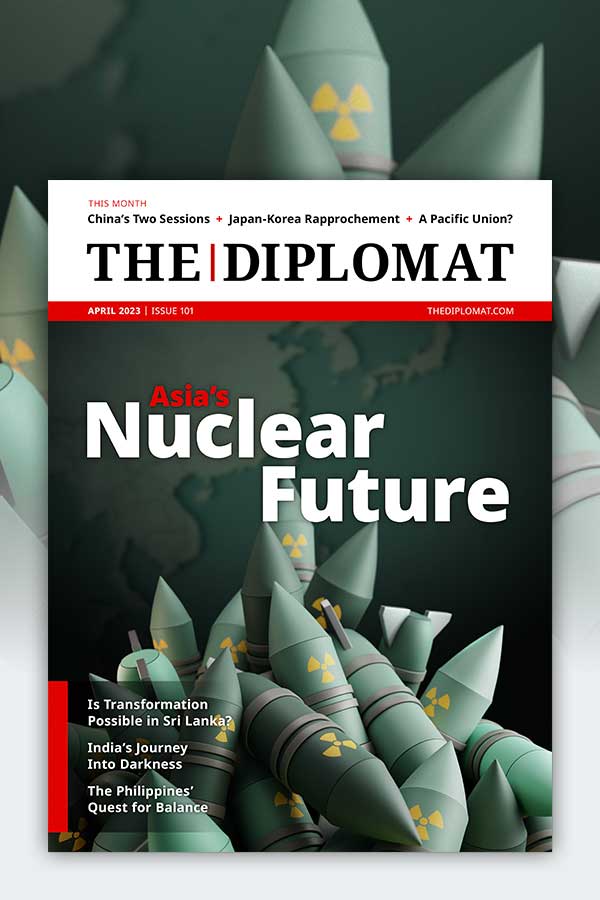| Welcome to the latest issue of Diplomat Brief. This week our top story explores the varied views Kazakhs hold of Russia’s invasion of Ukraine. We also have an interview with Martin B. Gold, author of “Crosscurrents: US Relations with Nationalist China, 1943-1960,” on the early history of U.S. relations with the ROC government on Taiwan. |
| Story of the week | ![[object Object]](https://thediplomat.com/diplomat-brief/2023/vol17/images/feature.jpg) | Security The Kazakhstanis Picking Sides in the Russian War in UkraineWhat Happened: Kazakhstan has been in a bind since Russia launched its full-scale invasion of Ukraine in February 2022. Officially, Kazakhstan’s government has maintained a neutral position, neither condemning nor supporting Moscow in the conflict. However, many Kazakhstanis have picked sides in the conflict. The widely divergent stances displayed by Kazakhstani nationals – including those who have joined in the fighting on both sides – are a microcosm of the former SSR’s love/hate relationship with Moscow. Our Focus: Some Kazakhs are directly impacted by the conflict: Roughly 400,000 ethnic Kazakhs lived in Ukraine prior to the invasion, and around 600,000 live in Russia. As a result, Kazakhs have joined the war on both sides. Kazakhstani national Jaisulan Duysembin joined the war on Ukraine’s behalf, telling The Diplomat that he fights “to protect my children and our beloved Ukraine … I think here we are deciding the fate of all nations.” By contrast, 22-year-old Kazakhstani national, Lev Uvarov, fought alongside Russian forces until he was killed in battle in August 2022. Uvarov posted on social media that Russia must “take back” the “stolen territories” it lost when the USSR dissolved. These same divides show up within Kazakhstan itself, where people have engaged in protests and rallies both for and against Russia’s invasion. What Comes Next: According to a telephone survey conducted in November 2022, almost 60 percent of Kazakhstanis consider themselves to be “neutral” in the conflict, with only 22 percent and 13 percent supporting Ukraine and Russia, respectively. The split in opinion – and the refusal of most Kazakhstanis to even register a preference – is telling. Kazakhstani political scientist Gaziz Abishev believes that the majority of Kazakhstanis want to avoid picking a side, just as their government does. As he put it, “both [Russia and the West] possess lethal instruments of influence... We know that Western sanctions would annihilate our economy. However an economic blockade from Russia, not to mention a potential invasion, would too be a grave threat.” Read this story |
| Behind the News | INTERVIEW Martin B. GoldMartin B. Gold, author of “Crosscurrents: US Relations with Nationalist China, 1943-1960,” on the historic roots of U.S. Taiwan policy: “The advent of the Korean War converted what was an exhausted and somewhat recriminatory relationship between the United States and Nationalist China into a firm anti-Communist alliance. As a key link in the island chain that stretched from the Aleutians to Australia, Taiwan assumed a central place in U.S. security planning for the Pacific.” Read the interview |
| This Week in Asia | Northeast Asia President Yoon’s State Visit to the U.S.On Tuesday, South Korea’s President Yoon Suk-yeol arrived in the United States for a five-day state visit, his first since assuming office. There’s no shortage of issues to discuss: strengthening the alliance’s nuclear deterrent against North Korea, advancing the thaw between South Korea and fellow U.S. ally Japan, and solidifying cooperation on economic security after some friction in this area in 2022. Find out more | South Asia Pakistan’s Supreme Court to Hear Election CaseOn Thursday, Pakistan’s Supreme Court will resume hearing a petition on the date of national and provincial elections. Earlier this year, the PTI, led by ousted Prime Minister Imran Khan, dissolved the assemblies it controlled in Punjab and Khyber Pakhtunkhwa provinces, hoping to force early polls. Now the PTI wants the assembly elections to move forward immediately, while the current PML-N government wants to hold them simultaneously with national elections this fall. Both sides are jockeying for political advantage in the polls, with Pakistan’s highest court now called upon to make a decision. However, the Supreme Court’s ruling could muddle more than it clarifies, given the body’s reputation for partisanship. Find out more | Southeast Asia Mainland Southeast Asia Sweats, Braces for DroughtA record heatwave combined with intense smoke from burning off cropland has created the worst living conditions in memory across mainland Southeast Asia. Temperatures are routinely exceeding 40 degrees Celsius in Myanmar, Thailand, Laos, and Cambodia. Worse, the long-range forecast suggests no respite from the heat – and predicts a return to the drought conditions that have so frequently plagued the Mekong region. Find out more | Central Asia Former Intelligence Chief Convicted of Treason in KazakhstanKarim Massimov, a long-serving government official in Kazakhstan considered deeply loyal to the country's first president and at one point in time viewed by some as a possible successor, was convicted this week on charges including high treason after a five-month trial in Astana. The trial was classified and so, while we know Massimov has been positioned as the fall-guy for the January 2022 violence, precisely what the state says he did remains a secret. His supporters claim he’s a victim of political persecution. Find out more |
| Visualizing APAC |  | The town of Thantlang in western Myanmar has been reduced to a ghost town amid repeated air strikes by the junta. See the full picture |
| Word of the Week | Society 4B4B, shorthand in Korean for “4 noes,” refers to a radical strand of Korean feminism that calls for 비연애 (biyeonae; no dating), 비섹스 (bisekseu; no sex), 비혼 (bihon; no marriage), and 비출산 (bichulsan; no children). Find out more |
| Webinar Alert | The Diplomat Asks Taiwan’s Future in Latin AmericaIn March, Taiwan lost one of its diplomatic allies in Latin America when Honduras established ties with China. That leaves Taipei with just 13 formal diplomatic partners, 7 of which are in Latin America and the Caribbean. As China’s role in Latin America continues to grow, what are the prospects for Taiwan's continued relationships in the region? What calculations are factoring into its remaining allies' decision-making, and what can Taiwan do to bolster its position? Join us on May 10 at 9 a.m. U.S. Eastern time for a live webinar on Taiwan’s future in Latin America, a crucial region for its international diplomacy. Featuring Patricio Giusto, the executive director of the Observatory of China-Argentina Relations and a Ph.D. candidate in International Studies at Di Tella University, Argentina, Julieta Heduvan, a Paraguayan foreign policy analyst and the national coordinator of the Latin American Association of Asian and African Studies (ALADAA Paraguay). Brian Hioe, one of the founding editors of New Bloom, an online magazine covering politics and youth culture in Taiwan, as well as a freelance journalist and regular columnist for The Diplomat. Sign up for the webinar |
|  |




![[object Object]](https://thediplomat.com/diplomat-brief/2023/vol17/images/feature.jpg)

